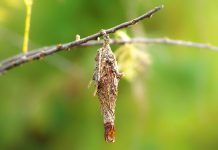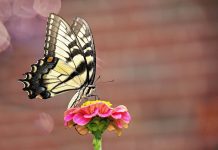In this blog post, you will understand the butterfly life cycle with the help of the following 12 images.
I – All butterflies go through the same basic butterfly life cycle. The eggs of a butterfly, when seen up close, are very intricately constructed, but the reason why a mystery remains. The egg of Zebra (Heliconius charitonius), has been laid at the end of a tendril to minimize the risk of it being eaten by other caterpillars.
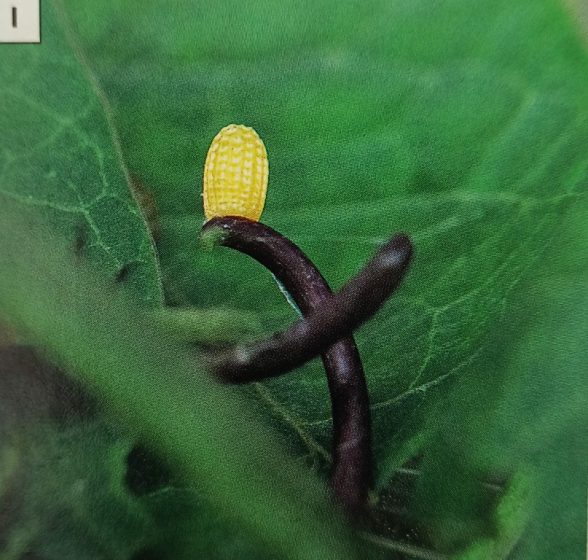
2 – This strange-looking beast is the larva of the Purple Hairstreak butterfly. You can see how effectively it hides amongst the twigs pretending to be an innocuous leaf bud. Every season countless numbers of caterpillars are found and eaten by predators, but usually enough survive to produce a new generation. The efforts of mankind have, however, put such pressure on the ecosystem that many of the delicately balanced relationships between predator and prey have been upset, resulting in species becoming extinct the world over.
3 & 4-This caterpillar of the Zebra butterfly (Heliconius charitonius) is busy working its way through a leaf of its food plant the passionflower. Notice the spines on its back and sides -these are thought to aid in defense against parasites.

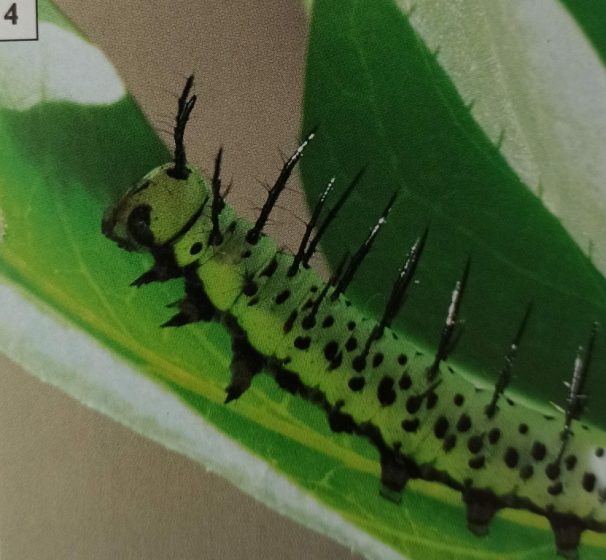
5-You can easily imagine how this Zebra butterfly pupa would blend in if it were among dead leaves.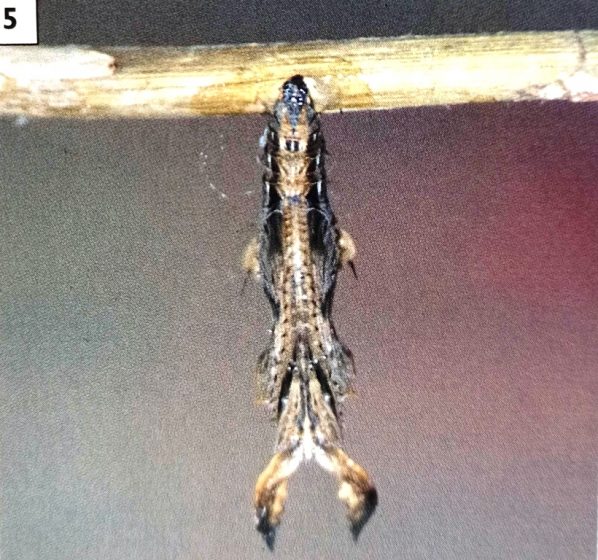
6-The pupa often changes color just before the adult emerges. This is a result of wing colors showing through the casing.
7-Notice how the casing has darkened – this can be a very useful indicator if you want to take pictures of the butterfly’s emergence. You can also delay the event by a few hours by moving the pupa to a cool dark place until you are ready. Don’t leave it like this for too long though, or it will die.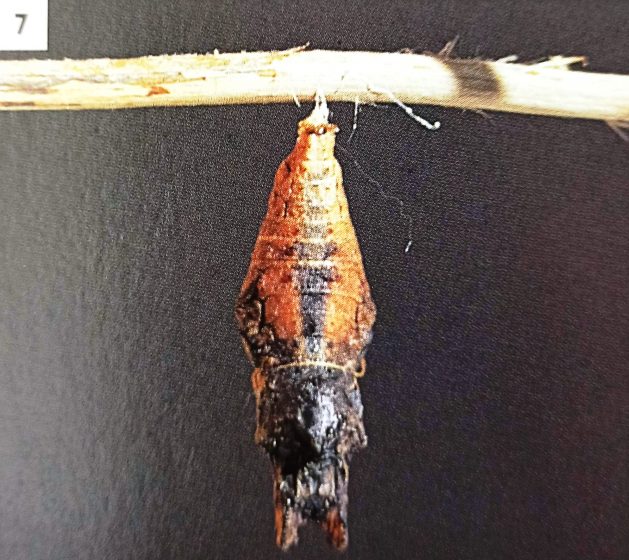
8-This is the start of the adult Zebra butterfly’s emergence. Here, the case has started to split, and the wing colors can just be seen. During this procedure, the butterfly is incredibly vulnerable as its warning coloration is not yet visible to predators.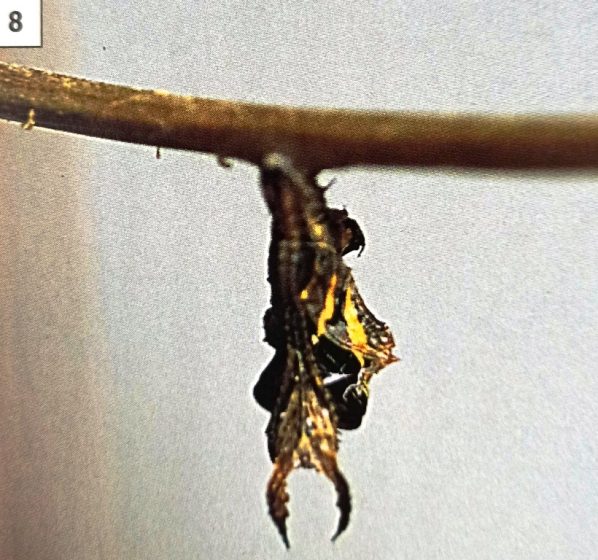
9-The butterfly has managed to free its head from the pupal case and is now struggling to extricate its body from the constricting shell.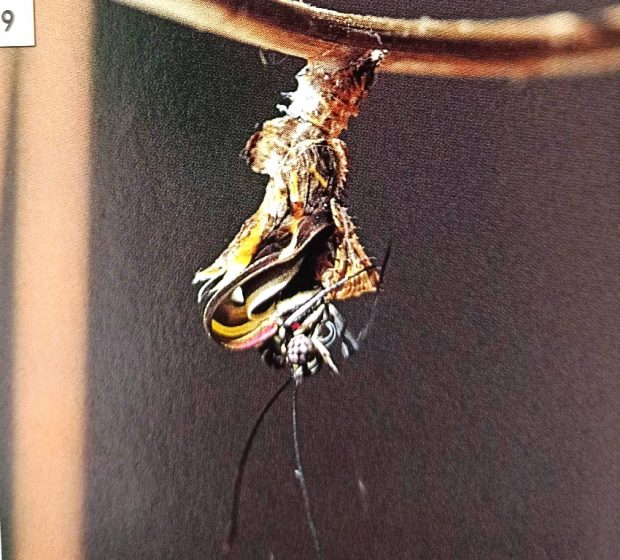
10-Almost there! The wings have now got to be pumped up and then allowed to dry. The warning colors are not yet fully visible, so this is still a risky time.
11-In the heat of the tropics, it does not take long for the final drying- but the warning colors are already showing, so the most dangerous time is now past.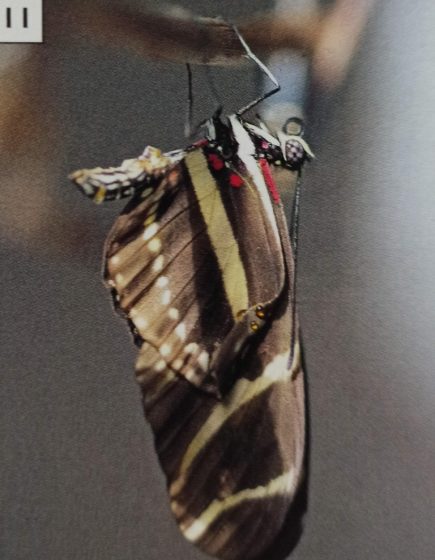
12-This is an adult Zebra butterfly, showing its distinctive wing markings.

Product You May Interested
- Feel Emotional Freedom! Release Stress, Heal Your Heart, Master Your Mind
- 28 Day Keto Challenge
- Get Your Customs Keto Diet Plan
- A fascinating approach to wipe out anxiety disorders and cure in just weeks, to become Anxiety free, relaxed and happy.
- Flavor Pairing Ritual Supercharges Women’s Metabolisms
- The best Keto Diet Program
Also Read: Butterfly as Pets


